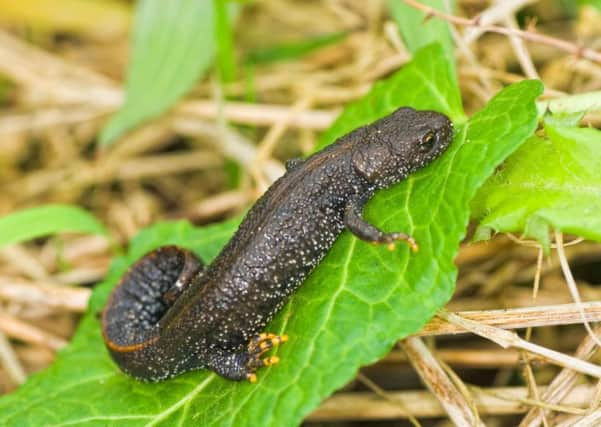HS2 wildlife projects in Kenilworth to start this month


HS2 Ltd will build six new ponds for species such as great crested newts along Finham Brook at sites off Dalehouse Lane and near Kenilworth Golf Club.
New woodlands will also be created as part of the project.
Anthony Coumbe, HS2 Ltd’s local head of environment, said: “The new habitats at Finham Brook will be the first of many to come between London and the West Midlands.


Advertisement
Hide AdAdvertisement
Hide Ad“They will help us to care for the local environment and serve as a new home to wildlife affected by the future development of the railway.
“We’ll relocate newts to the habitat next year, once it has become properly established, while other wildlife will start to use the area naturally over time.
“Ultimately, we’re aiming to create a railway that works for nature as well as passengers, with a green corridor of connected habitats running through the spine of the country.”
But Warwickshire Wildlife Trust does not think HS2 is doing enough.


Advertisement
Hide AdAdvertisement
Hide AdIan Jelley, director of living landscapes at the trust, said: “Wildlife Trusts nationally have campaigned against the proposed HS2 route because of the enormous impact it will have on wildlife and to challenge HS2 to raise its ambition for the natural environment.
“At this stage HS2 Ltd has committed to secure ‘no net loss of biodiversity’ on a route- wide basis, which means if the route destroys important wildlife sites then HS2 will look to recreate equivalent sites elsewhere.
“This does not adequately address the impact on ancient woodland which when destroyed along the route is irreplaceable.
“A key outcome of the project should be achieving ‘gains for nature’ rather than simply ‘no loss’ to biodiversity and mitigation.”
Advertisement
Hide AdAdvertisement
Hide AdMajor work on HS2 will start in 2018, and the line is expected to be completed by 2026.
The Government has said it will cost £56 billion to construct, although campaign groups such as Stop HS2 think it could end up costing double.